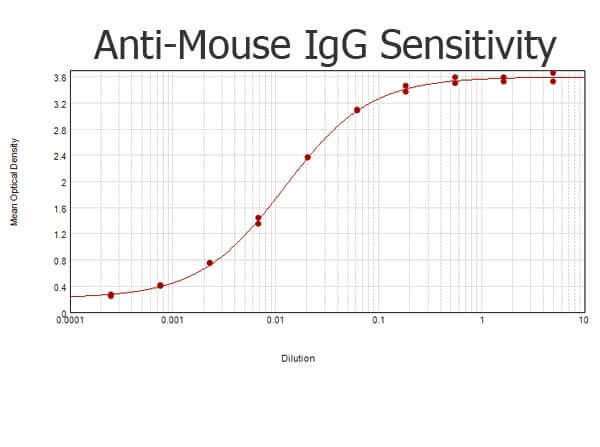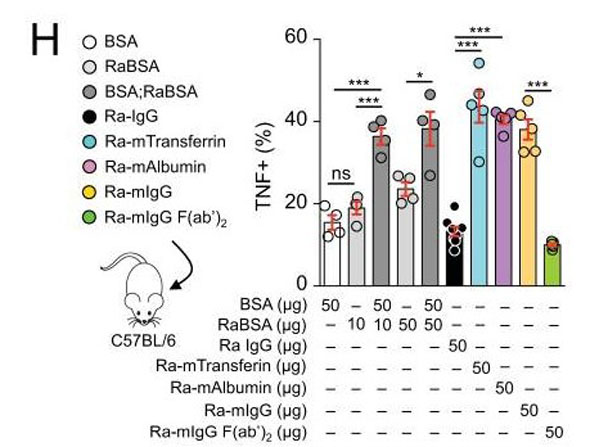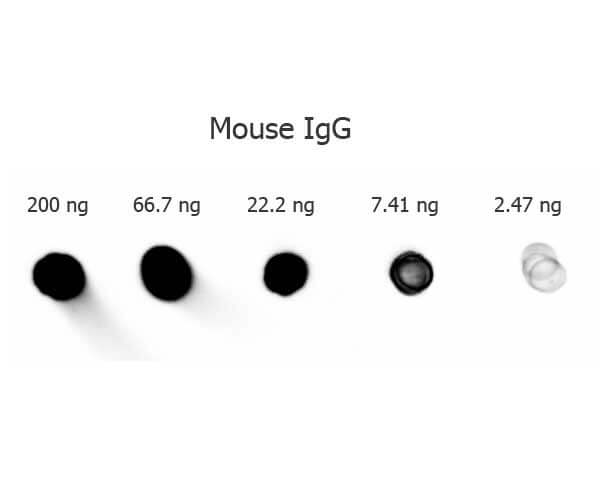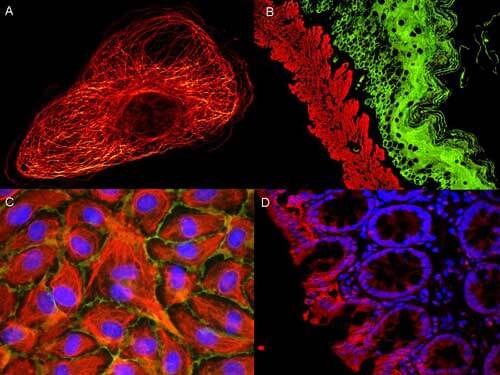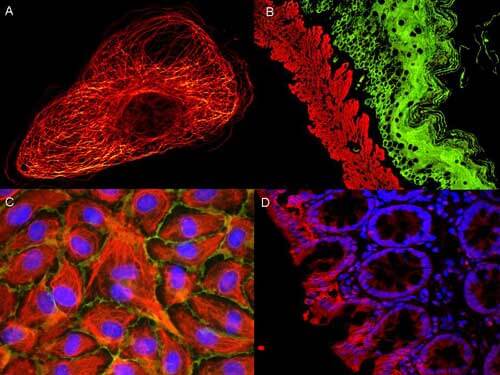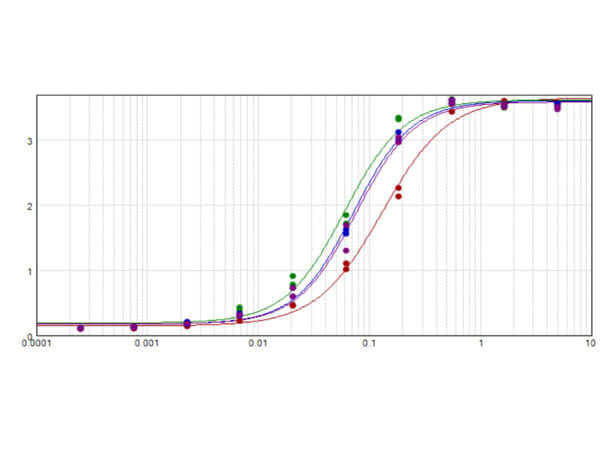Mouse IgG (H&L) Secondary Antibody
Rabbit Polyclonal
4 References
610-4102
2 mg
Liquid (sterile filtered)
WB, ELISA, IHC, EM, IP
Mouse
Rabbit
Shipping info:
$50.00 to US & $70.00 to Canada for most products. Final costs are calculated at checkout.
Product Details
Rabbit Anti-Mouse IgG (H&L) Antibody - 610-4102
rabbit anti-Mouse IgG Antibody, rabbit anti-mouse IgG heavy and light chain antibody, rb anti-ms IgG heavy and light chain, Anti-Mouse Secondary Antibody, rabbit anti Mouse IgG Antibody
Rabbit
IgG (H&L)
Polyclonal
IgG
Target Details
Mouse
Mouse IgG whole molecule
Anti-Mouse IgG (H&L) Antibody was prepared from monospecific antiserum by immunoaffinity chromatography using Mouse IgG coupled to agarose. Assay by immunoelectrophoresis resulted in a single precipitin arc against anti-Rabbit Serum, Mouse IgG and Mouse Serum.
Application Details
ELISA
EM, IHC, IP, WB
- View References
Anti-Mouse IgG Antibody has been tested by ELISA and is ideal for Western Blotting, Immunohistochemistry, ELISA as well as other antibody detection methods.
Formulation
2.08 mg/mL by UV absorbance at 280 nm
0.02 M Potassium Phosphate, 0.15 M Sodium Chloride, pH 7.2
0.01% (w/v) Sodium Azide
None
Shipping & Handling
Wet Ice
Store vial at 4° C prior to opening. This product is stable for several weeks at 4° C as an undiluted liquid. Dilute only prior to immediate use. For extended storage aliquot contents and freeze at -20° C or below. Avoid cycles of freezing and thawing.
Expiration date is one (1) year from date of receipt.
Anti-Mouse IgG Antibody generated in rabbit detects reactivity to Mouse IgG heavy and light chains. Secreted as part of the adaptive immune response by plasma B cells, immunoglobulin G constitutes 75% of serum immunoglobulins. Immunoglobulin G binds to viruses, bacteria, as well as fungi and facilitates their destruction or neutralization via agglutination (and thereby immobilizing them), activation of the compliment cascade, and opsonization for phagocytosis. The whole IgG molecule possesses both the F(c) region, recognized by high-affinity Fc receptor proteins, as well as the F(ab) region possessing the epitope-recognition site. Both the Heavy and Light chains of the antibody molecule are present. Secondary Antibodies are available in a variety of formats and conjugate types. When choosing a secondary antibody product, consideration must be given to species and immunoglobulin specificity, conjugate type, fragment and chain specificity, level of cross-reactivity, and host-species source and fragment composition.
Yuanxiang Huang et al. (2022). Edaravone Dexborneol Downregulates Neutrophil Extracellular Trap Expression and Ameliorates Blood-Brain Barrier Permeability in Acute Ischemic Stroke. Mediators Inflamm.
Applications
WB, IB, PCA
Stamatiades et al. (2016). Immune Monitoring of Trans-endothelial Transport by Kidney-Resident Macrophages. Cell
Applications
TEM
Sone H et al. (2005). Pancreatic beta cell senescence contributes to the pathogenesis of type 2 diabetes in high-fat diet-induced diabetic mice. Diabetologia.
Applications
IHC, ICC, Histology
Harada S et al. (1995). Insulin-induced egr-1 expression in Chinese hamster ovary cells is insulin receptor and insulin receptor substrate-1 phosphorylation-independent. Evidence of an alternative signal transduction pathway. J Biol Chem.
Applications
IP, Co-IP
This product is for research use only and is not intended for therapeutic or diagnostic applications. Please contact a technical service representative for more information. All products of animal origin manufactured by Rockland Immunochemicals are derived from starting materials of North American origin. Collection was performed in United States Department of Agriculture (USDA) inspected facilities and all materials have been inspected and certified to be free of disease and suitable for exportation. All properties listed are typical characteristics and are not specifications. All suggestions and data are offered in good faith but without guarantee as conditions and methods of use of our products are beyond our control. All claims must be made within 30 days following the date of delivery. The prospective user must determine the suitability of our materials before adopting them on a commercial scale. Suggested uses of our products are not recommendations to use our products in violation of any patent or as a license under any patent of Rockland Immunochemicals, Inc. If you require a commercial license to use this material and do not have one, then return this material, unopened to: Rockland Inc., P.O. BOX 5199, Limerick, Pennsylvania, USA.

